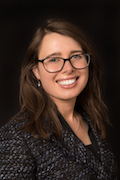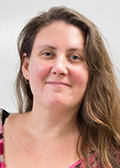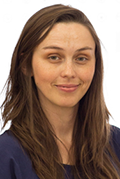Title
Reflections on Alternative Internet Models and How They Inform More Mindful Connectivity
Abstract
Internet access is often touted as the means by which communities will become more productive, educated, healthier, safer. While Internet access is becoming increasingly ubiquitous, high-speed, and affordable, some
communities without ubiquitous Internet have developed hybrid strategies, or alternative Internet models, that allow
them to get many of the benefits of constant connection. In this article, we argue that even communities with ubiquitous Internet have much to learn from these successful hybrid models, especially when considering the mental and relational health of communities. We surveyed a handful of communities that either through necessity or choice are using alternative Internet models that deliberately turn off portions of the typical Internet dial-tone including the delay-tolerant networks of extremely remote communities, Internet cafes used as low-cost communal points of access, El Paquete Semanal (Cuba's offline Internet alternative), and communities of "preppers" who seek to prepare for the collapse of modern infrastructure. We use the experiences of these communities with alternative Internet models as a lens through which to consider more mindful models of Internet consumption that might allow us to reap some of the proven benefits of Internet connectivity while avoiding some of its more damaging side effects.
Keywords
Alternative Internet models, community networks, mindful Internet
Authors
 Morgan Vigil-Hayes(Northern Arizona University, USA) Morgan Vigil-Hayes(Northern Arizona University, USA)
Morgan Vigil-Hayes is an Assistant Professor in the School of Informatics, Computing, and Cyber Systems at Northern Arizona University. Morgan’s research focuses on the characterization and design of community networks using techniques from mobile and wireless networking and social computing. Morgan is interested in applying her technical expertise to help ameliorate digital inequalities in rural and underserved communities and developing innovative technologies and architectures that center their design on community information needs and values. Morgan received her PhD in Computer Science from the University of California at Santa Barbara in 2017 and a B.S. in Computer Sci.
 Jeanna Matthews(Clarkson University, USA) Jeanna Matthews(Clarkson University, USA)
Jeanna Matthews is an associate professor of computer science at Clarkson University in Potsdam NY and an affiliate at Data and Society in Manhattan. She has published work in a broad range of systems topics from virtualization and cloud computing to social media security and distributed file systems. She has been a four-time presenter at DEF CON on topics including security vulnerabilities in virtual environments (2015 and 2016), adversarial testing of criminal justice software (2018) and trolling (2018). She is an ACM Distinguished Speaker, a Fulbright Specialist and a founding co-chair of the ACM Technology Policy Subcommittee on Artificial Intelligence and Algorithm Accountability. Her current work focuses on securing societal decision-making processes and supporting the rights of individuals in a world of automation. She received a 2018-2019 Brown Institute Magic Grant to research differences in DNA software programs used in the criminal justice system. At Clarkson, she runs a set of applied computing laboratories including the Clarkson Open Source Institute. Students in these labs and in her classes have been winners in a number of prestigious computing contests including the 2001, 2002, and 2004 IBM Linux Challenge, the 2005 IBM North American Grid Scholar's Challenge, the 2005 Unisys Tuxmaster competition, and the 2006 VMware Ultimate Virtual Appliance Challenge. She has written several popular books including "Running Xen: A Hands-On Guide to the Art of Virtualization" and "Computer Networking: Internet Protocols in Action". Jeanna received her Ph.D. in Computer Science from the University of California at Berkeley in 1999, a B.S. in Mathematics and Computer Science from Ohio State University in 1994 and a B.A. in Spanish from the State University of New York at Potsdam in 2015.
 Amelia Acker(University of Texas at Austin, USA) Amelia Acker(University of Texas at Austin, USA)
Amelia Acker studies the emergence and standardization of new information objects and data traces in mobile communication networks. Currently, she is researching data cultures, information infrastructures and digital preservation contexts that support long term cultural memory. Amelia’s current research program addresses emerging digital traces and mobile computing cultures that are shaped by new data collection practices amongst different kinds of users, designers, technologists, and institutions. She is currently carrying a three-year empirical investigation into emerging preservation tools for mobile and social media data stewardship funded by IMLS. Amelia is an assistant professor in the School of Information at the University of Texas at Austin. http://ameliaacker.com/
 Daniel Carter(Texas State University, USA) Daniel Carter(Texas State University, USA)
Daniel Carter is an assistant professor of digital media. He holds a Ph.D. in Information Studies from the University of Texas at Austin and an M.A. in English Literature from The Ohio State University. He has over ten years of experience in web design and development and currently teaches courses focused on coding and data. Dr. Carter’s research focuses on how people adapt technologies in order to meet their distinct needs. He is especially interested in how we can build technologies and educate students in ways the support creative, personally meaningful use. He has side interests in digital humanities, data visualization, labor and infrastructure.
|